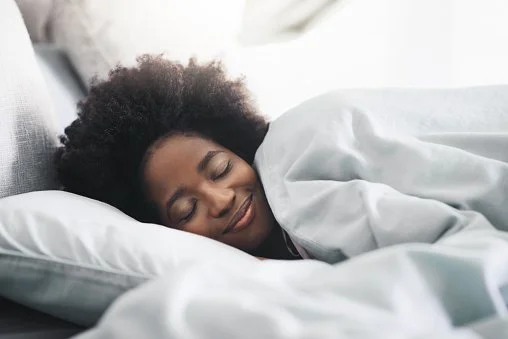Get Better Sleep
“Sleep is the best meditation.
”
There is general science-based consensus that an optimal amount of sleep for most adults is between 7 and 9 hours per night. Contrary to the opinion of many teens and young adults, sleep is not a waste of time. During sleep, our minds organize and integrate information from the daytime. Cells throughout our bodies are repairing and regenerating while we sleep, while our liver works on detoxification. Our bodies require sleep as much as they require food, water, and oxygen.
Much in our modern lives interferes with this basic need. Many adults suffer from different forms of sleep deprivation or insomnia. Here are some ideas for better sleep.
Sleep Techniques
Aim for an approximately regular bedtime and waking time on 5-7 days per week. Children benefit from this and so do adults.
Avoid eating a big meal within 2 hours of your bedtime. The energy required to digest the food can interfere with your ability to sleep.
Be aware of your caffeine and alcohol intake. Ability to metabolize caffeine or alcohol varies by individual and by age. Experiment with drinking caffeinated beverages only in the morning or in late afternoon between 3-5 pm.
Screen time, whether on smart phones, laptops, tablets, Kindles, or related devices within about 2 hours of bedtime can interfere with sleep. If you must use these devices in the late evening, install a free app to filter out activating blue light between designated hours, e.g., 9 pm to 7 am.
Stop any screen binge watching at least a few hours before midnight. Avoid watching highly suspenseful or frightening shows in the evening. This may include television news programs.
Create a regular bedtime routine that tells your mind and body sleep time is approaching. This might include a relaxing cup of herbal tea, some leg and calf stretches, a short meditation, and easy reading (paper print only) in bed before turning out the light.
During day hours and before the evening begins, do some form of movement such as biking or walking outside or an inside workout at a gym or at home. Aiming for at least 20-30 minutes three to five times per week will help exercise and relax your muscles and nerves. An evening walk is fine, but avoid vigorous workouts after 7 pm.
After a stressful day, take some time before bed for deep breathing. Inhale through your nose to a count of four and exhale through your mouth to a count of six. On exhale, visualize releasing stress and negative thoughts. Repeat 4-6 times or more.
Keep the bedroom temperature between 60 and 67 degrees and have a mattress, pillows, and covers that feel comfortable to you. Minimize any electronics near your bed and keep your cell phone (with ringtones and notifications on silent or low volume) and clock across the room, so you will need to get out of bed to turn an alarm off. Keep the room as dark as possible for sleeping.
Light sleepers may benefit from using a weighted blanket, earplugs, eye mask, or a machine or fan for white noise.
Unless you work evening or night shifts, limit any daytime naps to 10-30 minutes to minimize their interfering with night sleep. These short power naps can be very refreshing.
Sleep Aids
Taking magnesium glycinate in the evening helps relax muscles and nerves. Lavender oil on the edge of the pillowcase and applied to the temples and soles of your feet is relaxing. If you have trouble calming a busy mind at bedtime, try the homeopathic remedy Kali-Phos 6C (take one dose every 15 minutes up to 4 times). If using blue tube Boiron brand remedies, 2 pellets are always plenty per dose. Or take Similisan Sleep & Dream or Hyland’s Calms Forte, which are each a combination of relaxing homeopathic remedies. Deep Sleep brand herbal medicine softgels can be helpful. Experiment with a reputable Hemp CBD oil. Minimize use of the hormone melatonin, as using it in doses over 1 mg and over extended periods of time can result in your body not producing sufficient melatonin on its own. Drink a cup of an herbal tea designed to aid sleep, such as Celestial Seasonings Sleepytime or Traditional Medicinals Nighty Night. Each comes without or with the herb Valerian. Keep Rescue Remedy Sleep spray (a combination of peaceful flower essences) near your bed and use it in the night if needed.
When Nothing Works
When all else fails and you are lying in bed unable to sleep, get up after about 20 minutes and leave the bedroom. Wear warm pajamas or a robe with socks and slippers in cold weather. In a separate room and using minimal light, prepare a cup of calming herbal tea (see above). Then sit in a comfortable chair with a lamp on nearby, and read from a nonwork-related book or magazine. When your teacup is empty and regardless of whether you feel sleepy or not, turn off the reading lamp and let your eyes adjust to the general darkness in the room. Get up, turn off any other low light, and go back to your bed. Avoid looking at the time. Tuck yourself in, and sleep will usually follow.
“I change during the course of a day. I wake and I’m one person, and when I go to sleep I know for certain I’m somebody else.”
